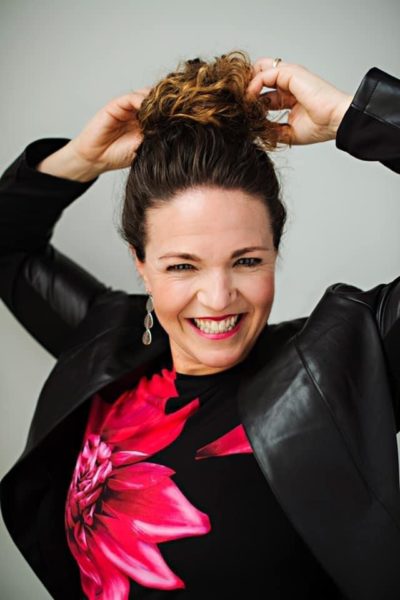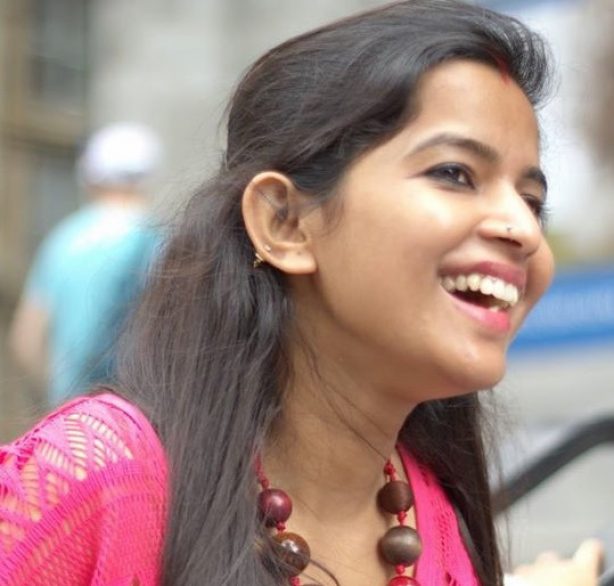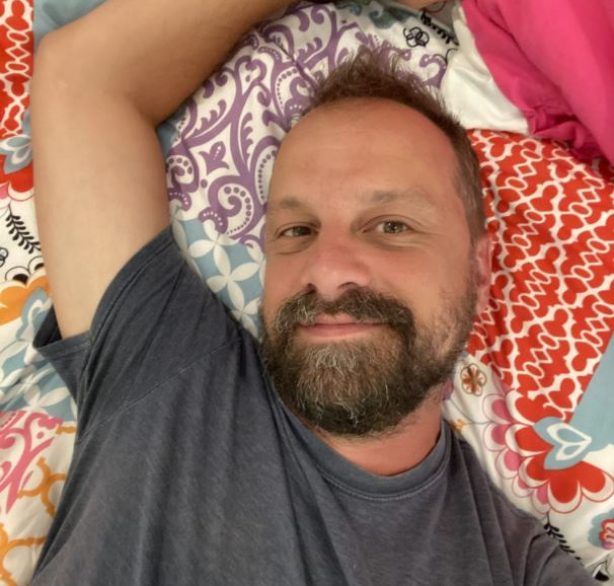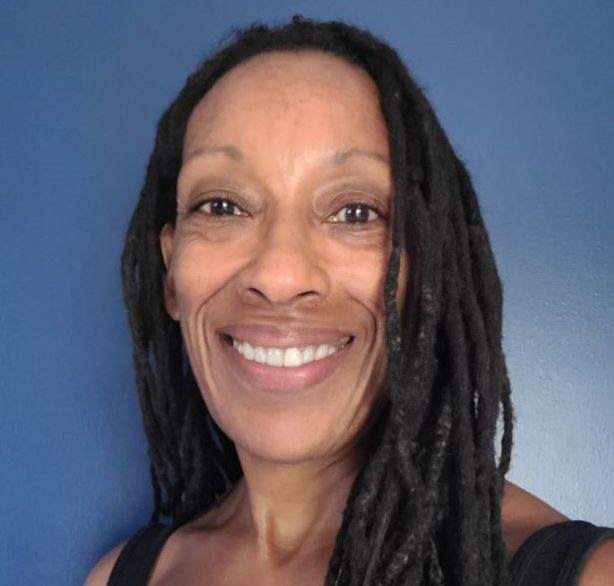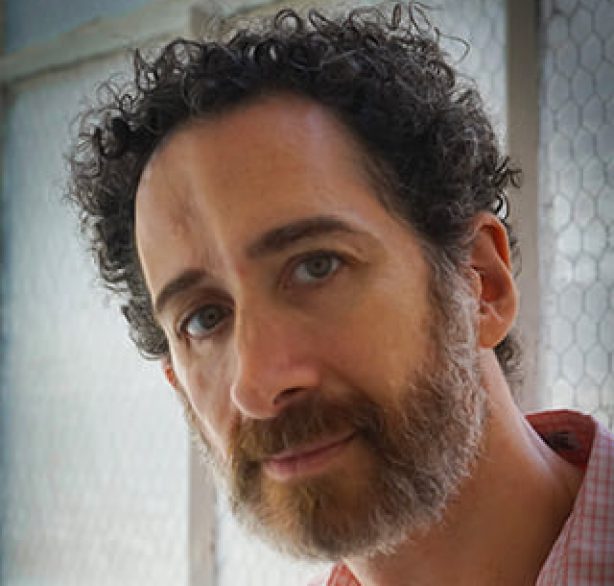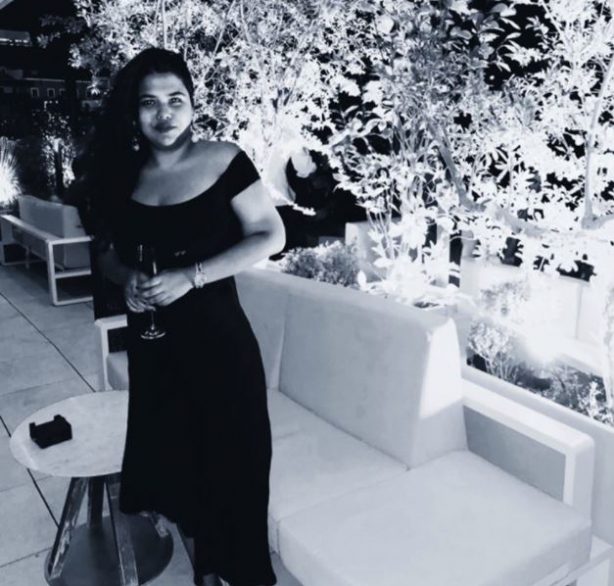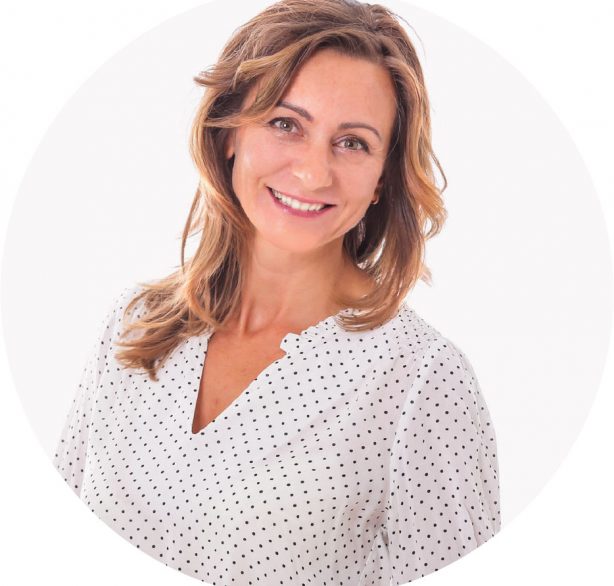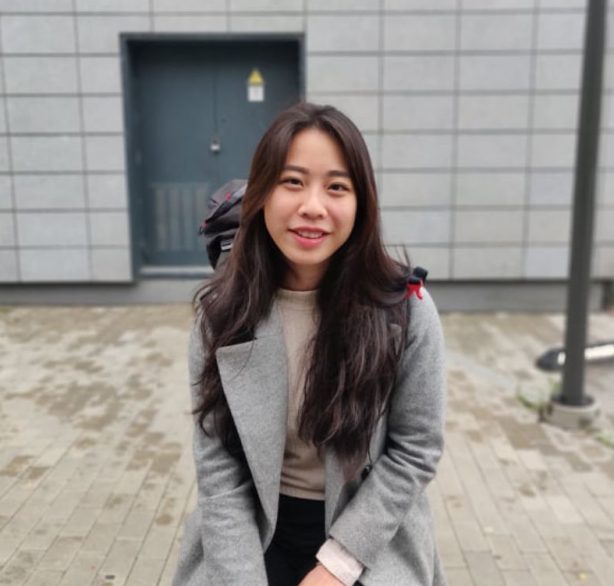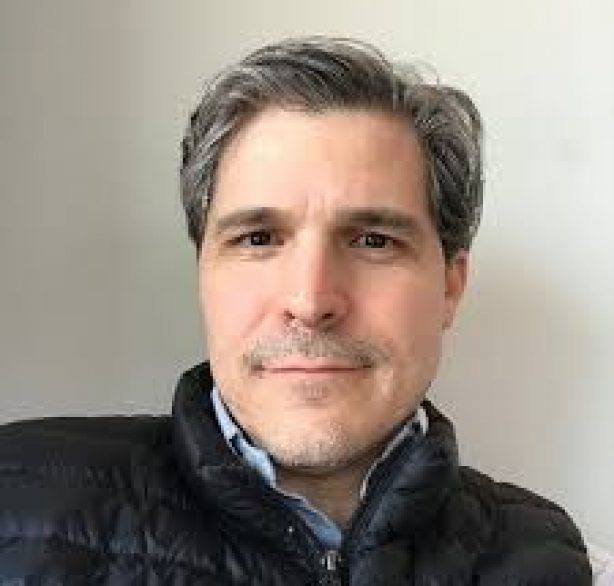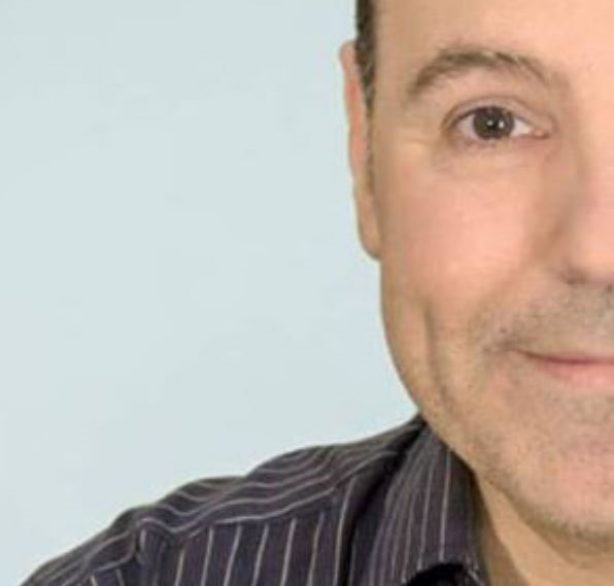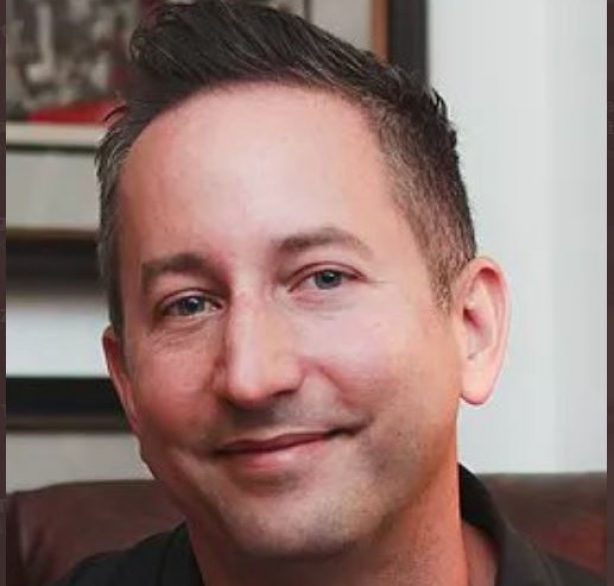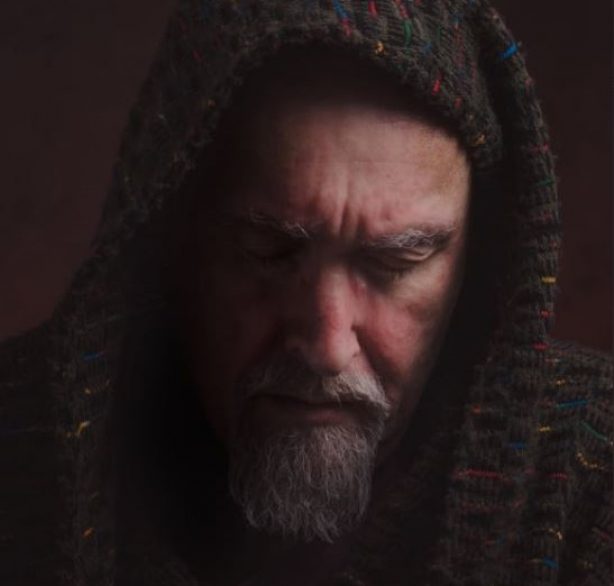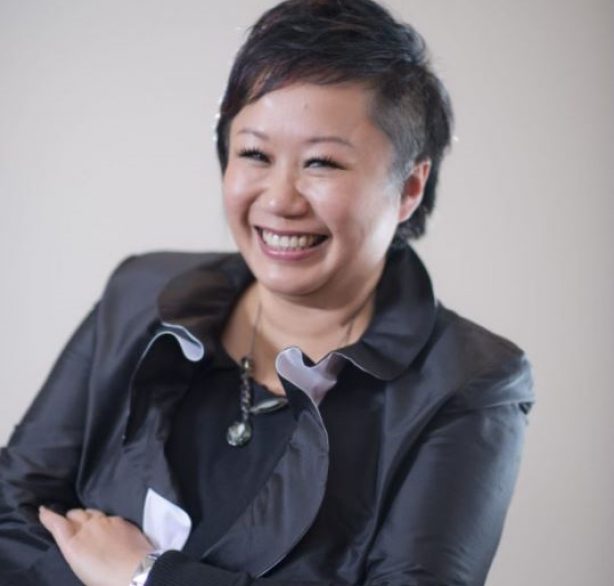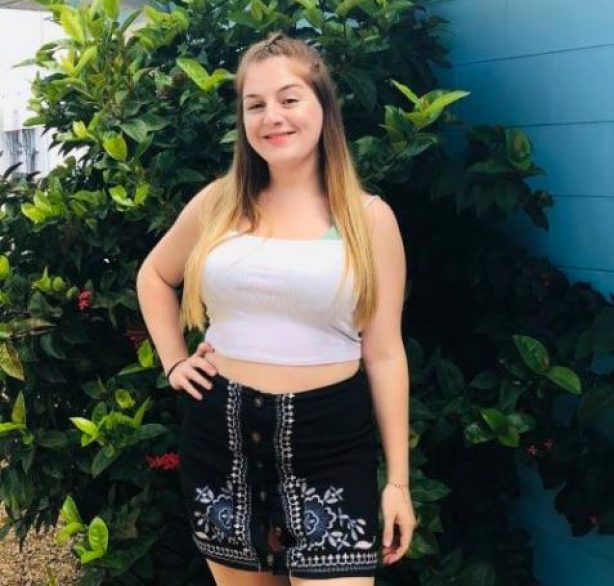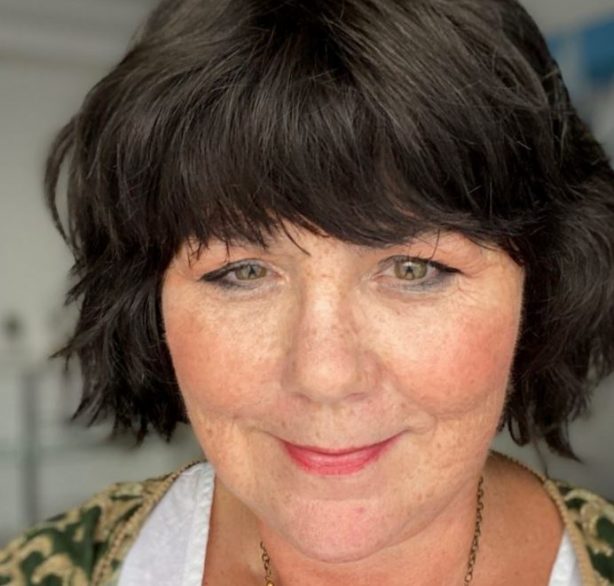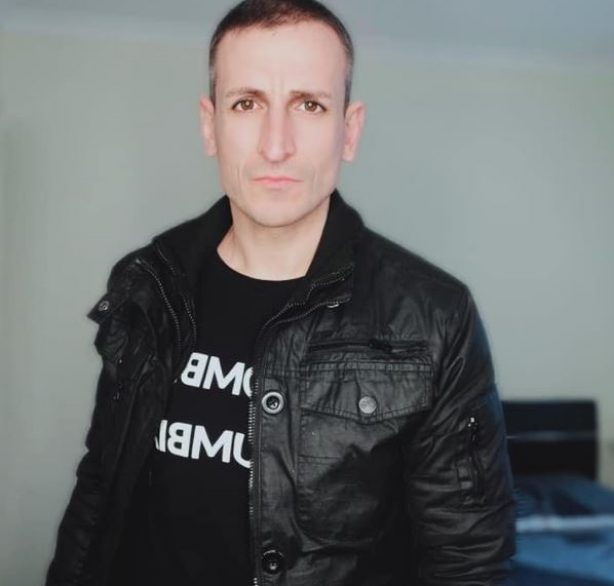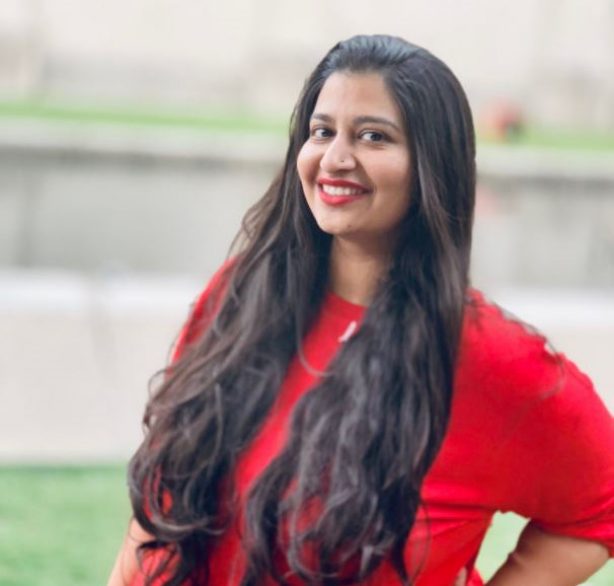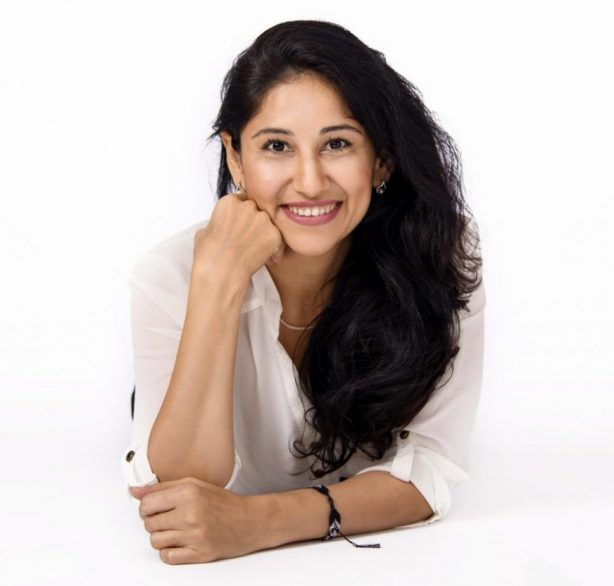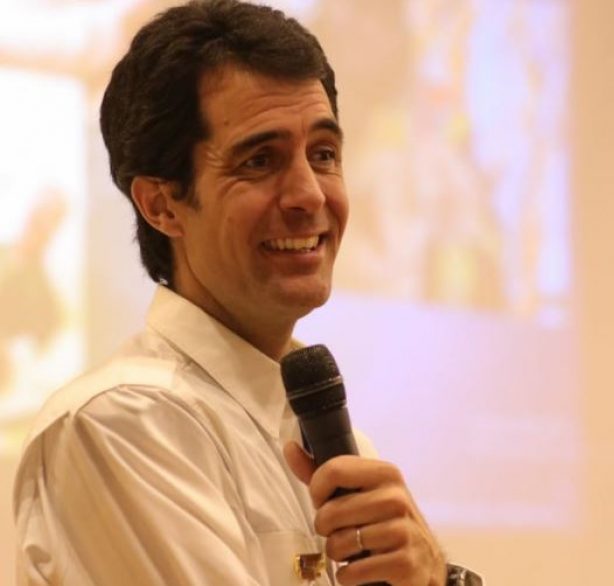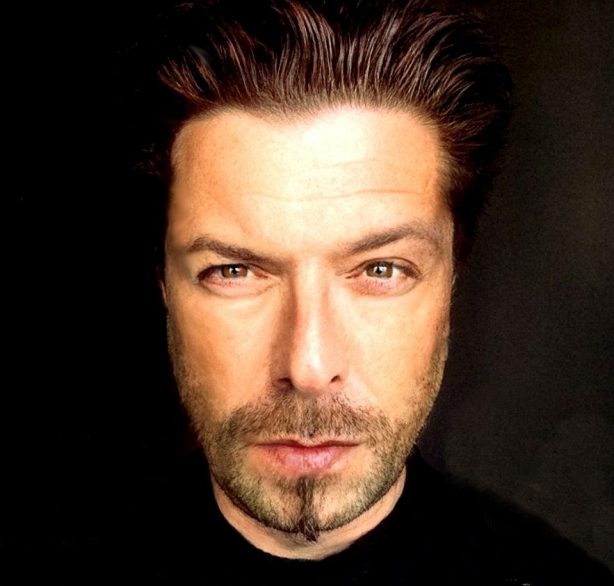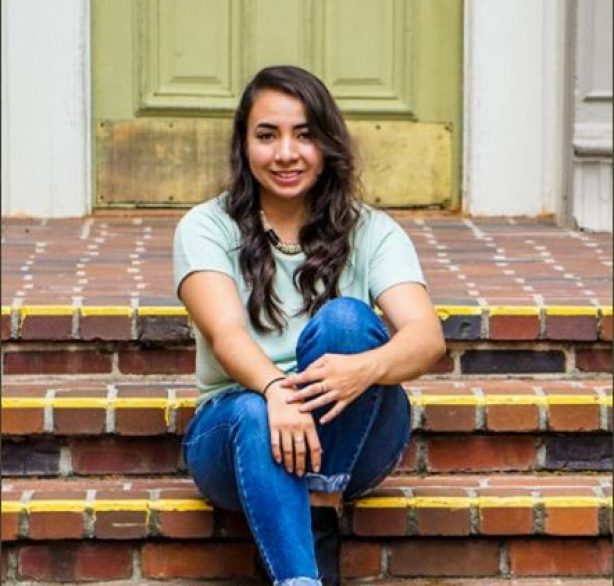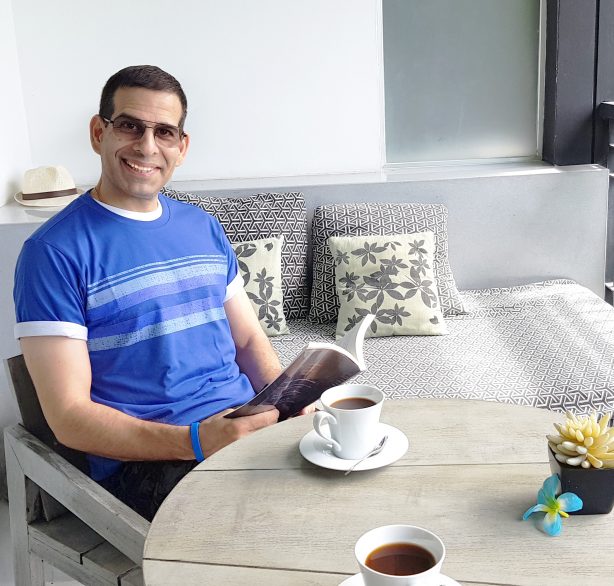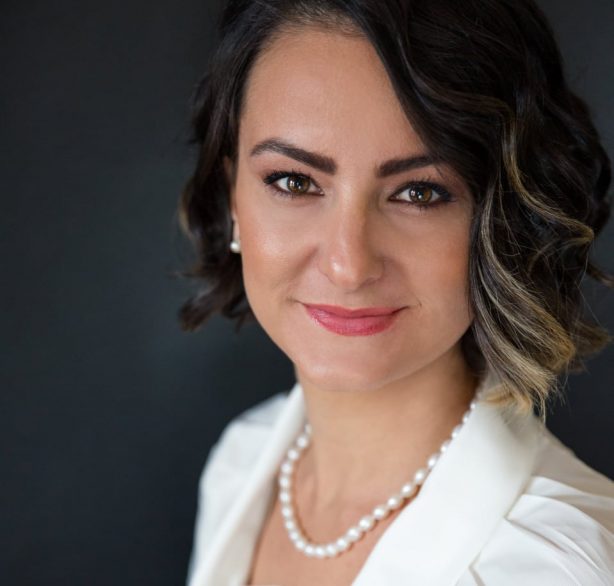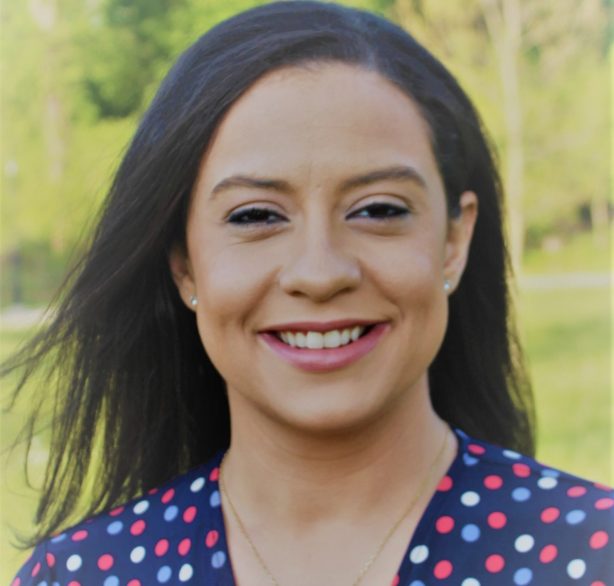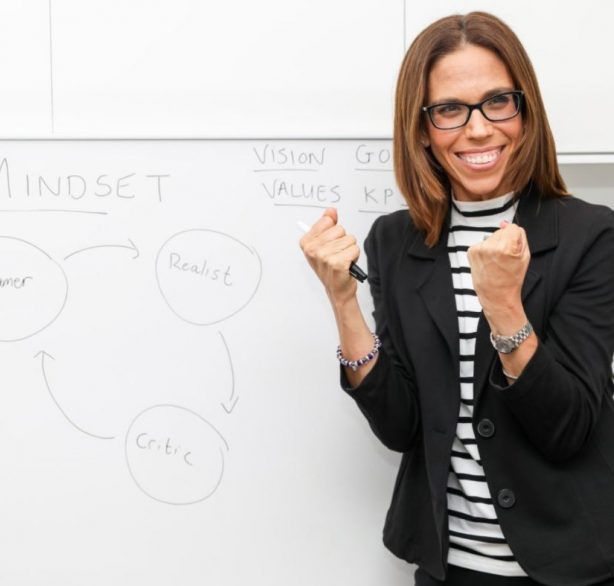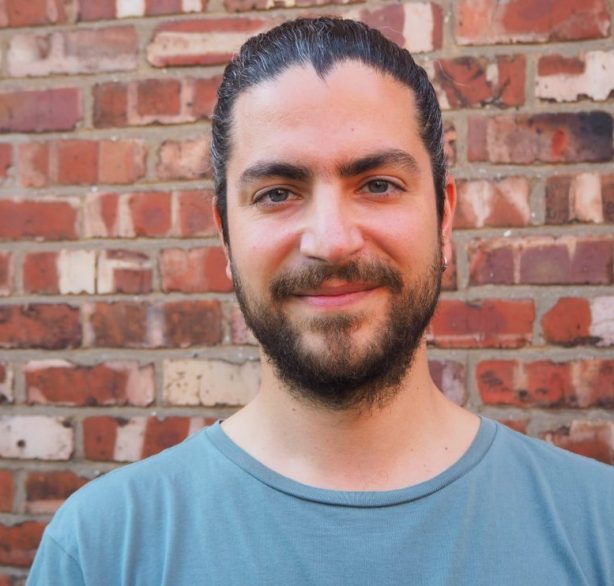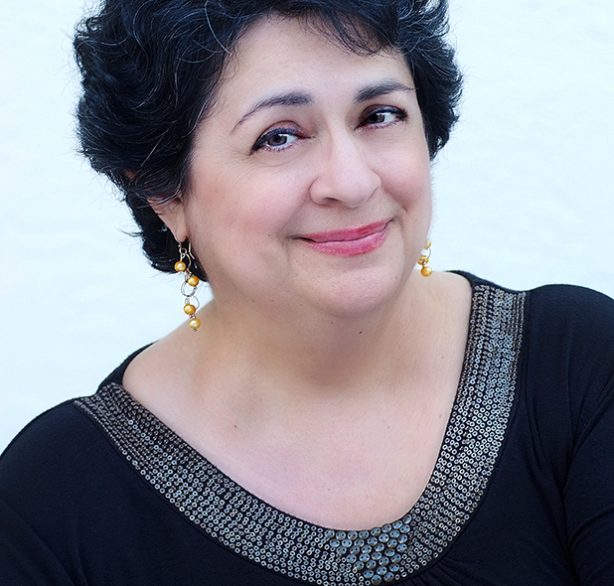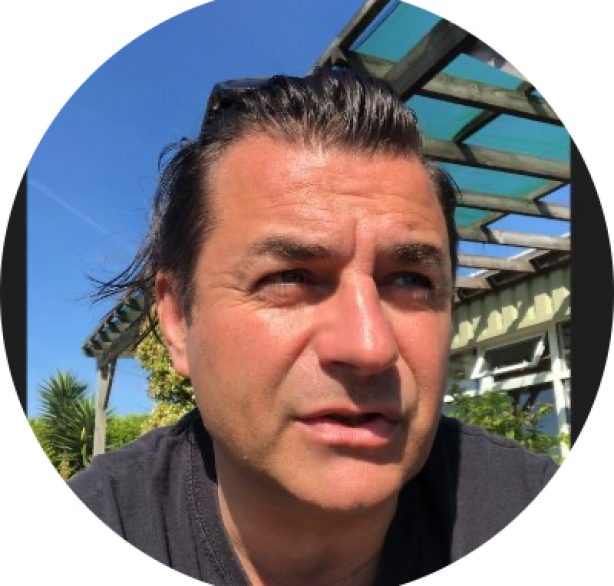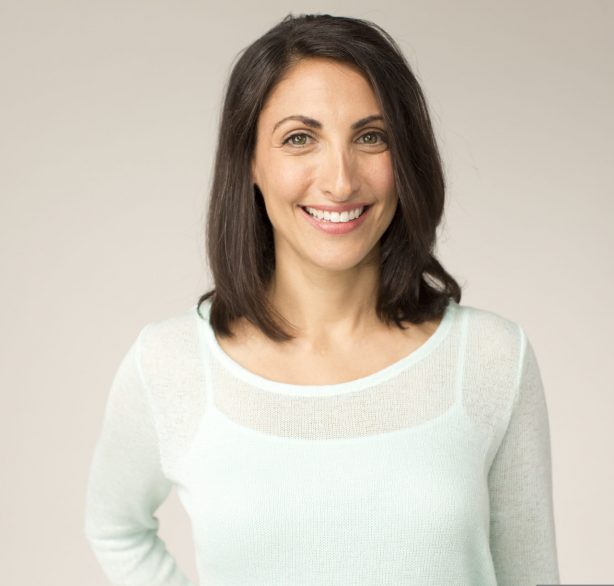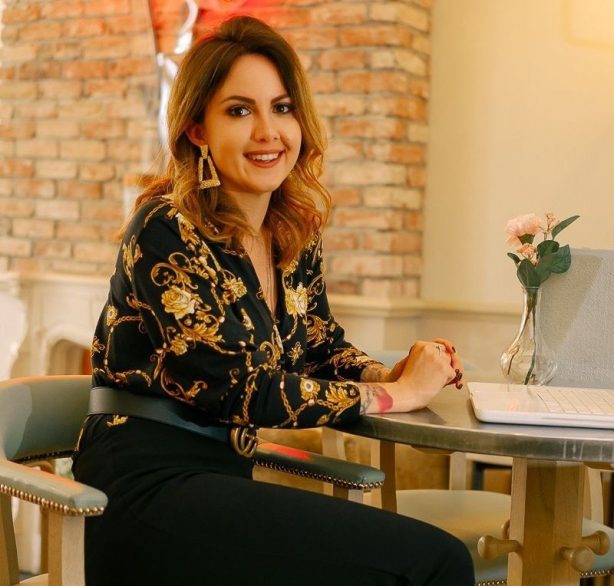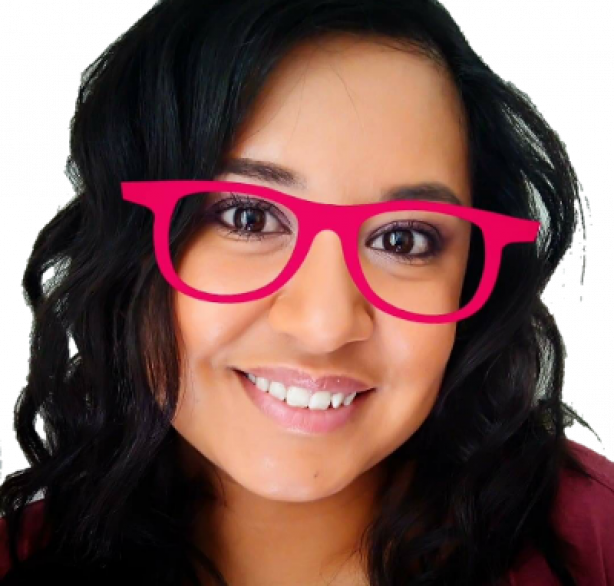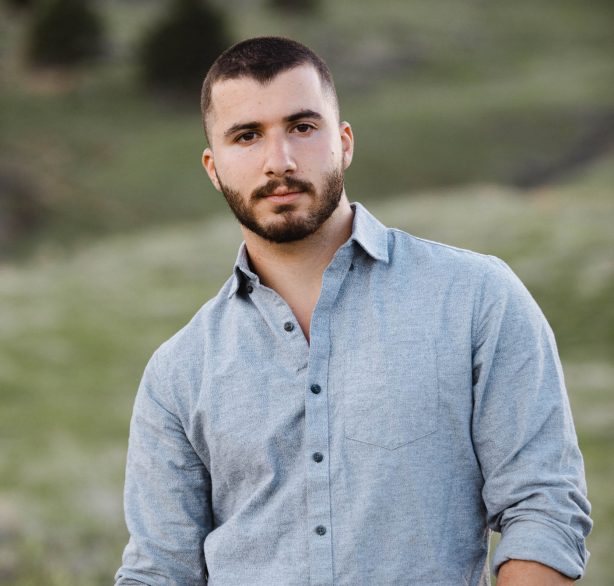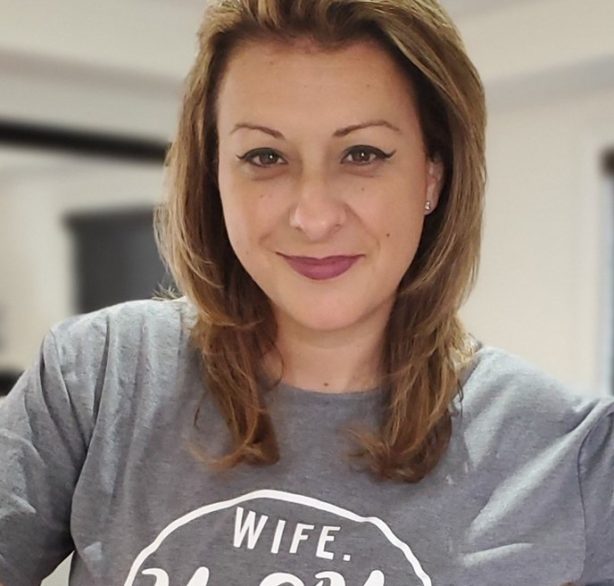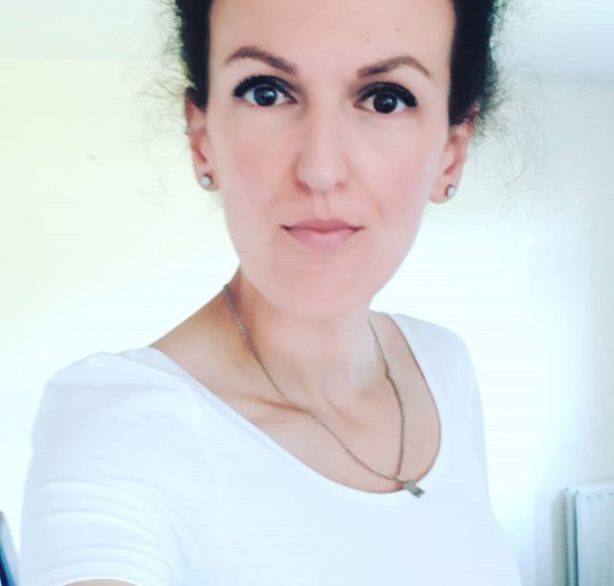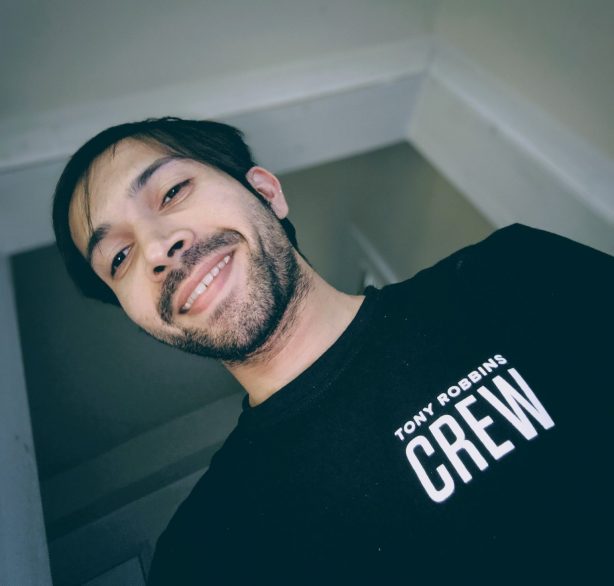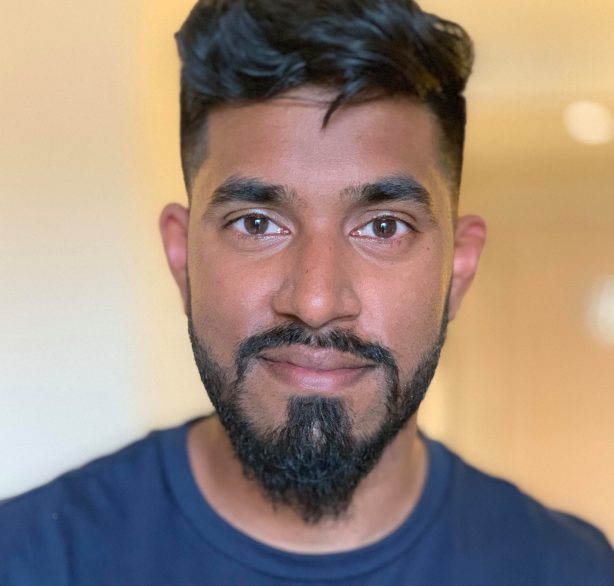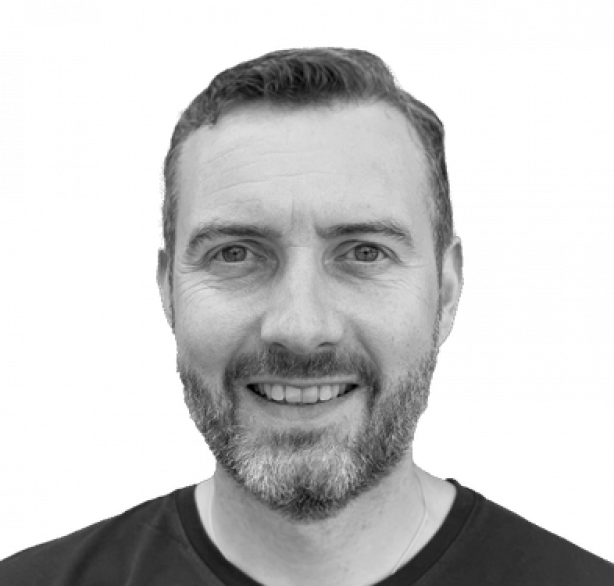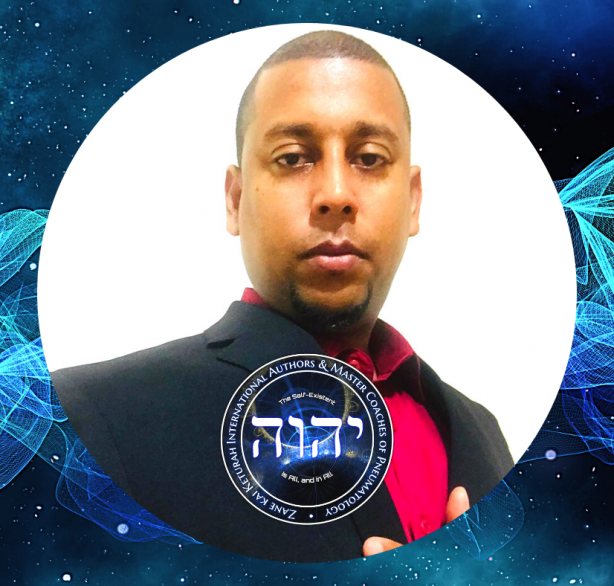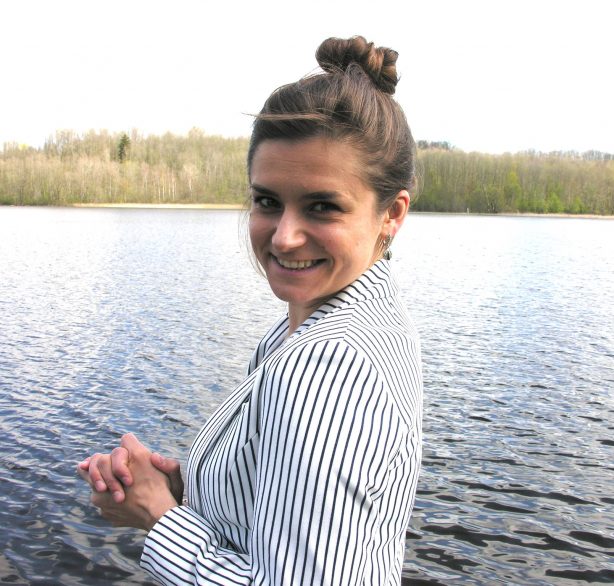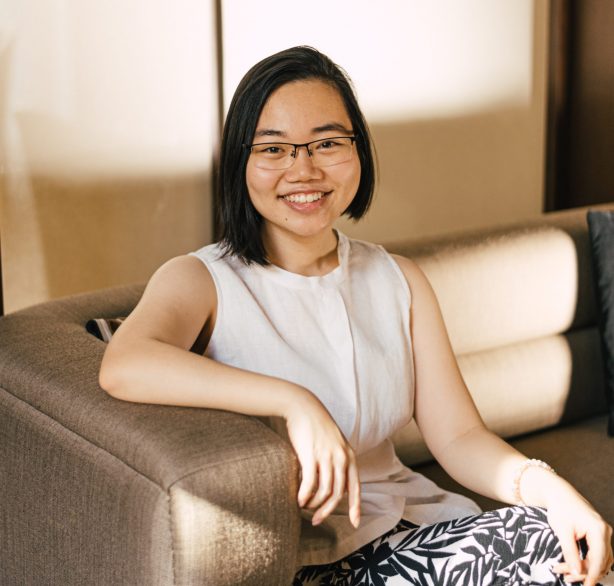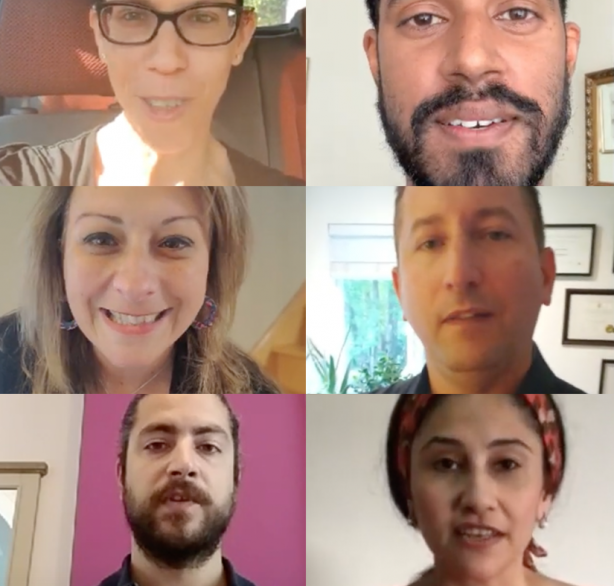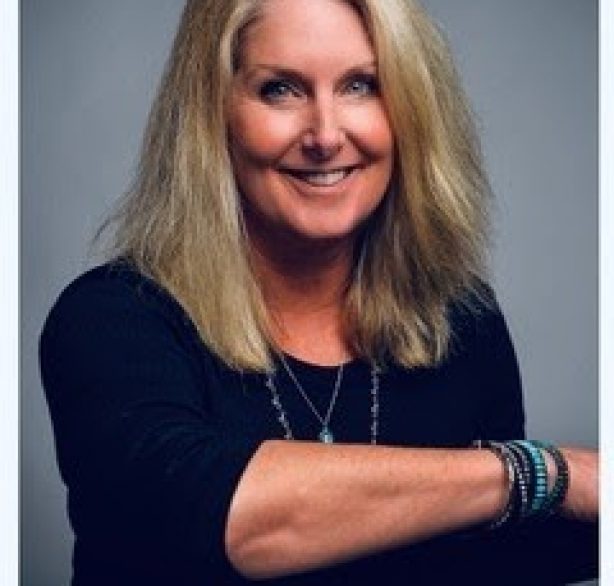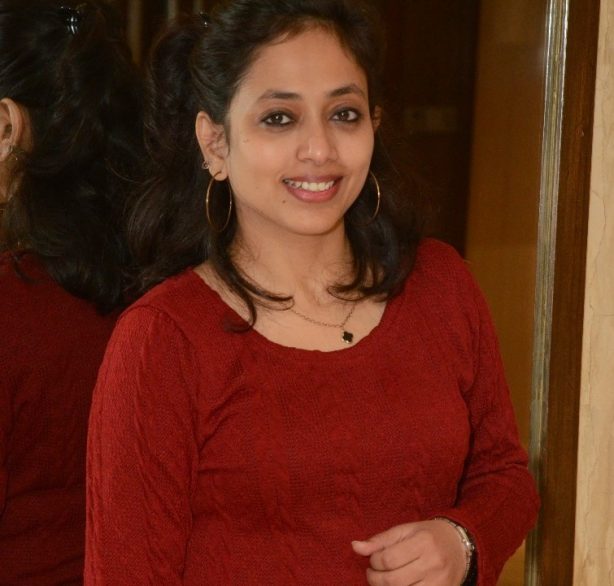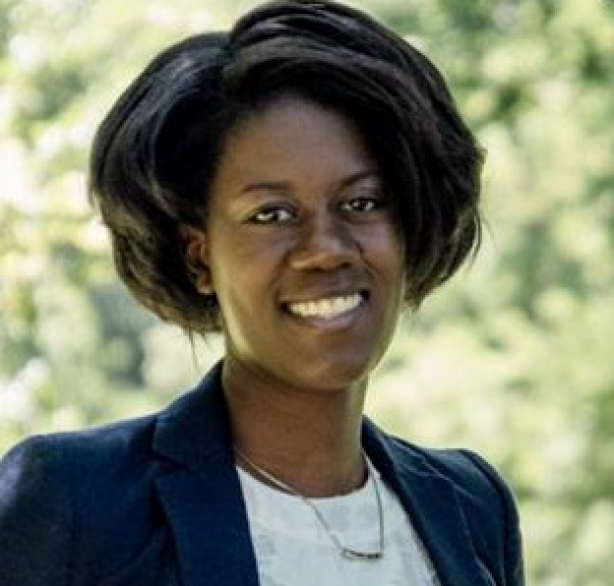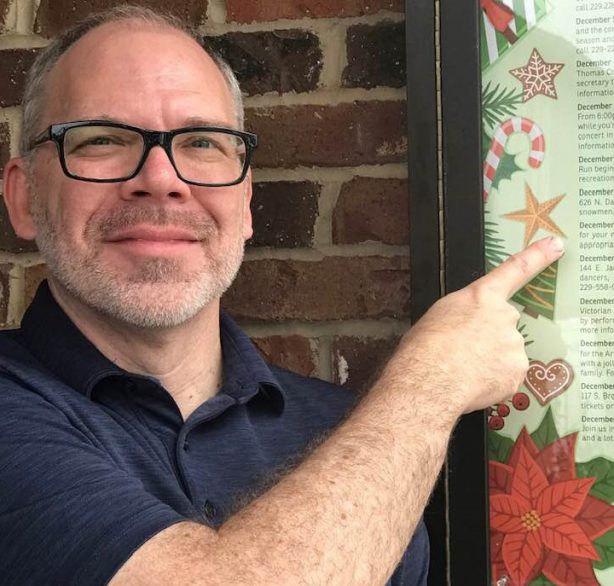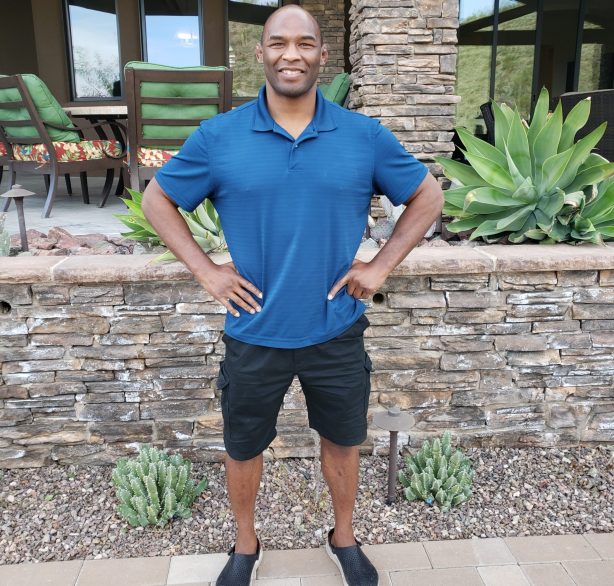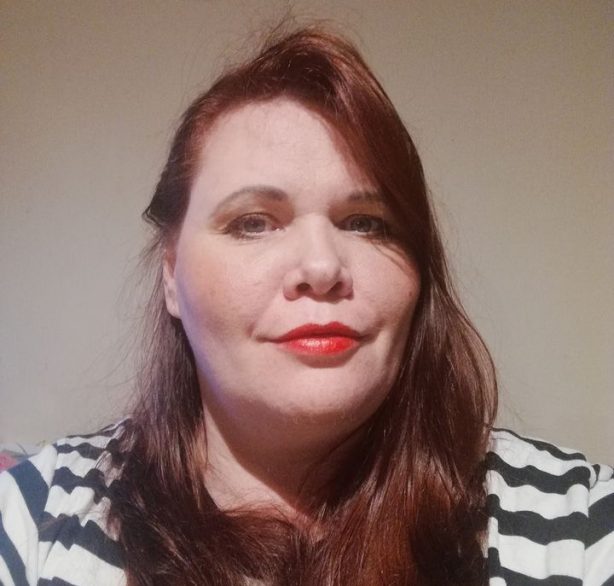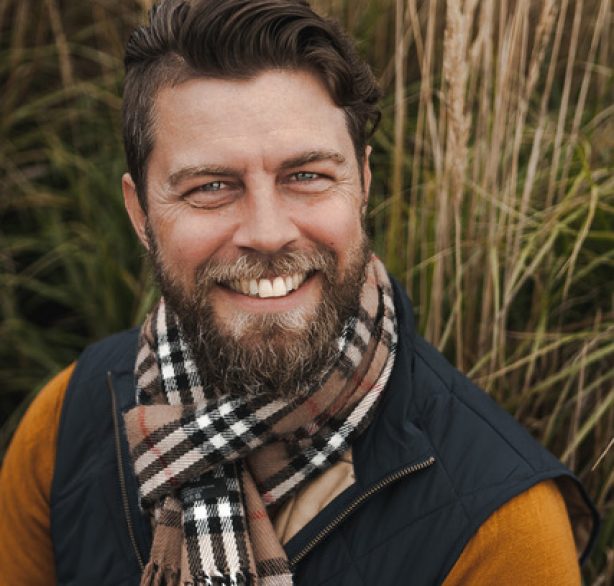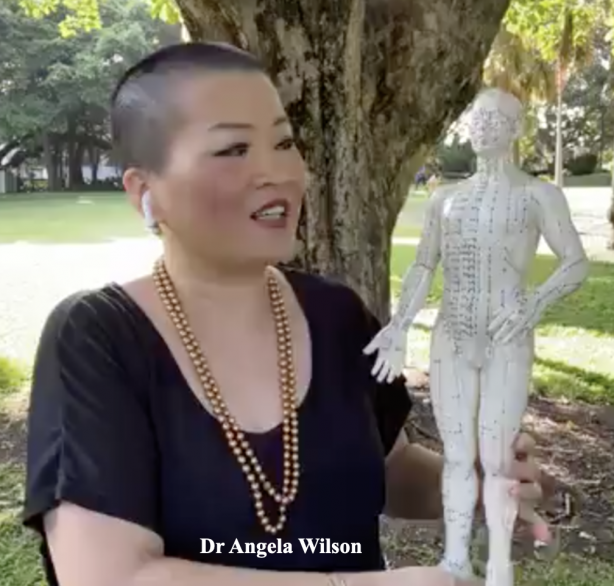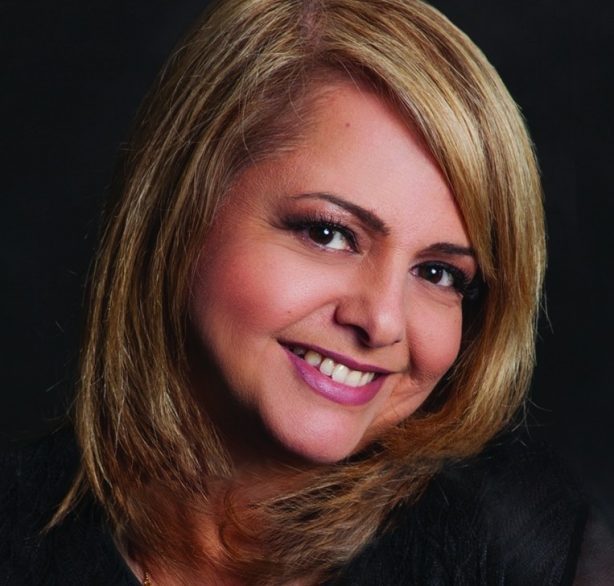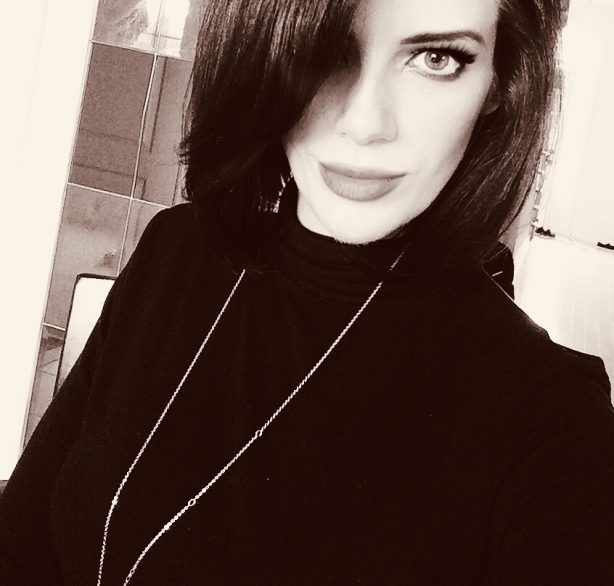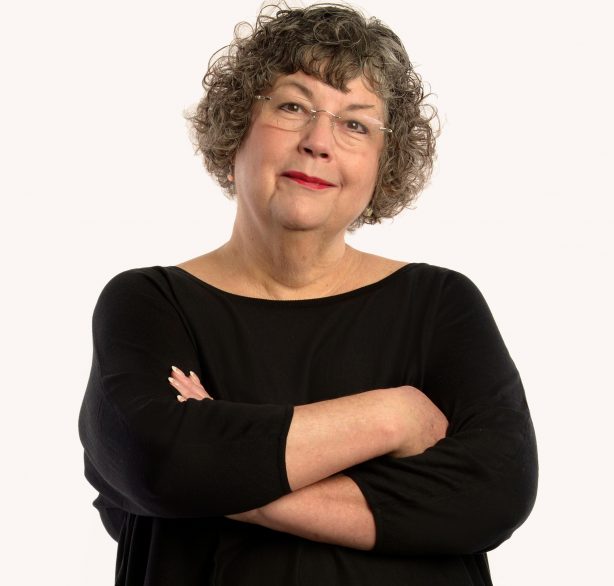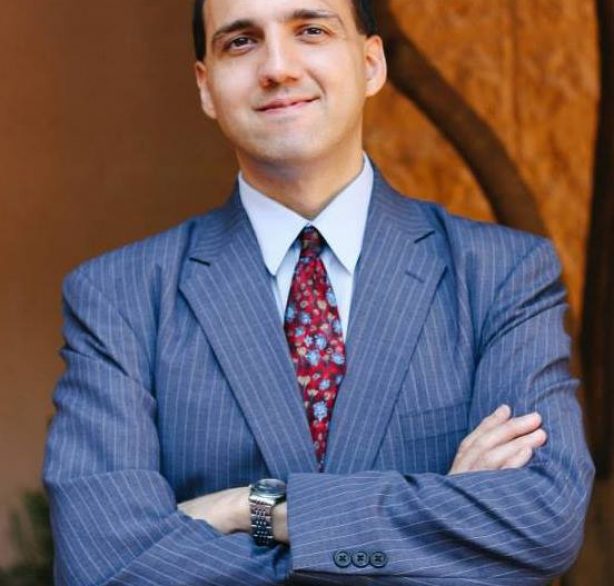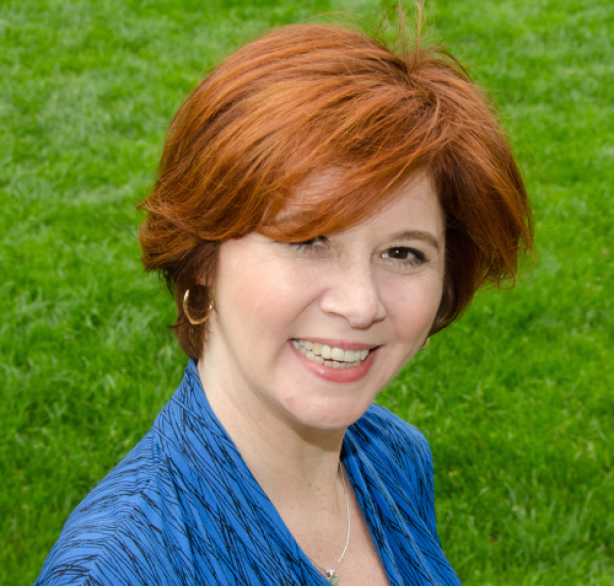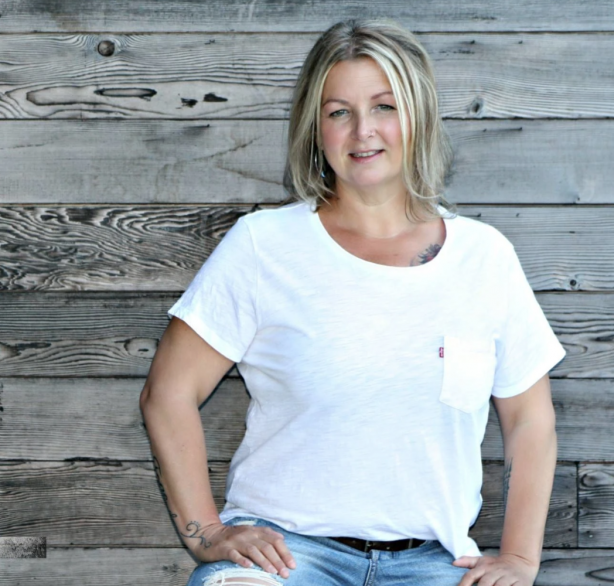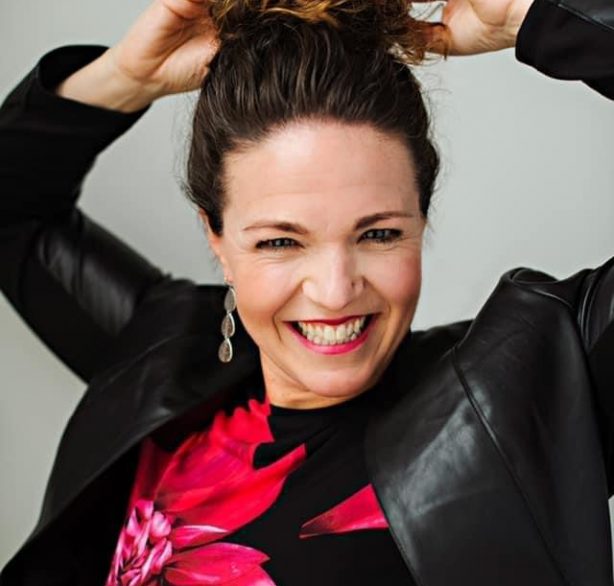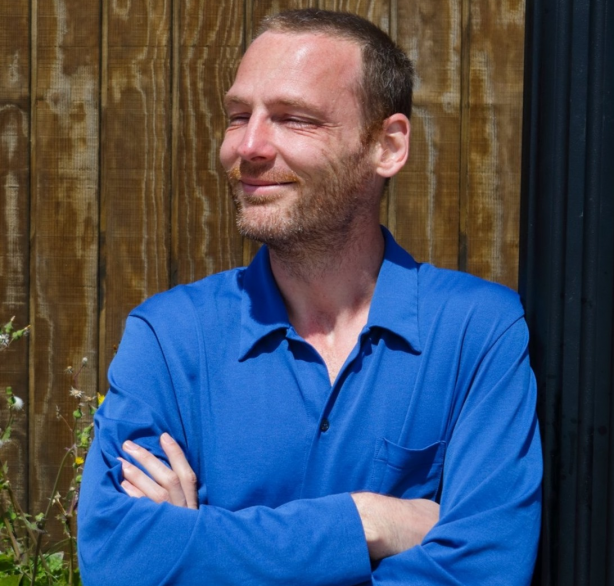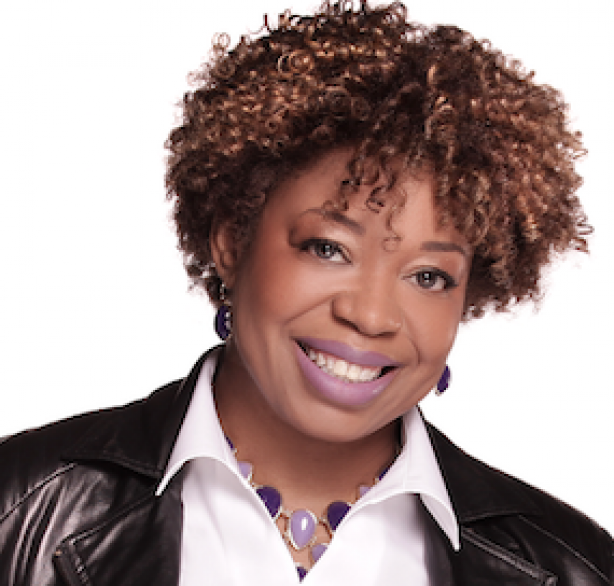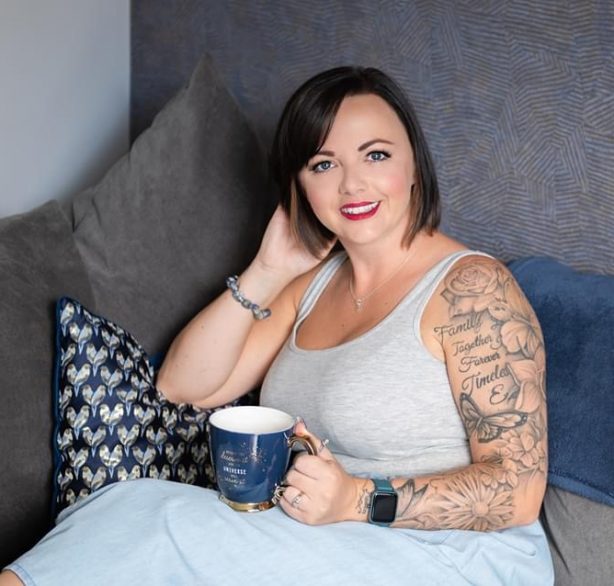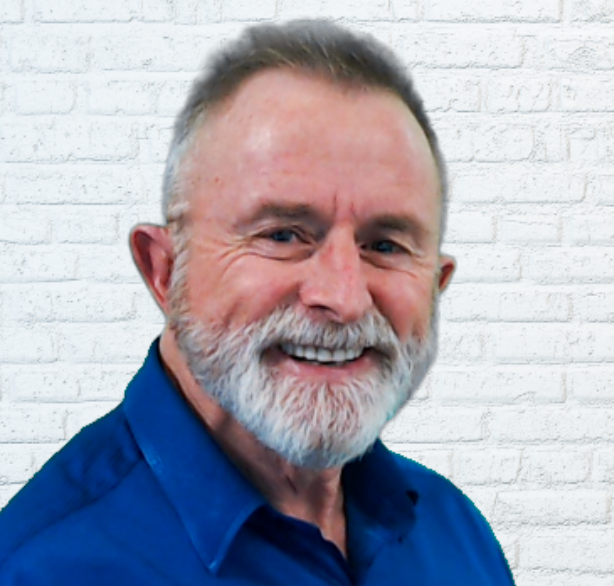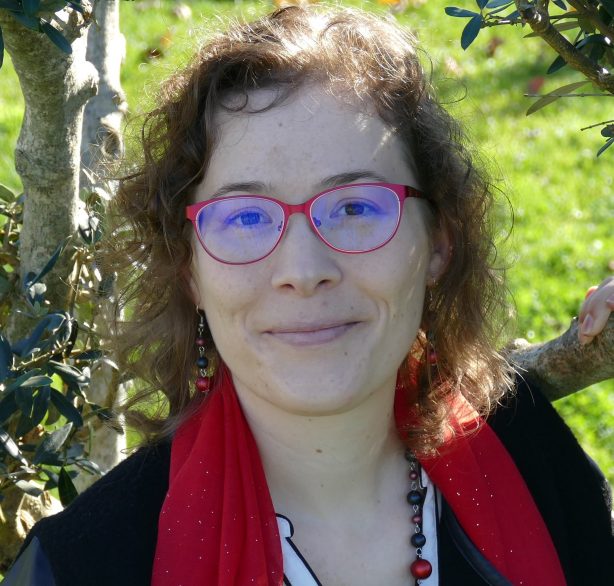Watch the full and inspiring interview with Kim
If you prefer reading, here is the transcribed interview
Ziv: Hey, I’m Ziv, and this is “On The Journey”. Every week “On The Journey” explores the intersection of when a special quiet mental health, personal growth and purpose for living through the eyes of the people interviewed.
And today, I’m really happy to host, Kim. That’s going to talk with us about coping stress through food taking.
Kim: Hello. Thank you so much for having me here. I’m excited to be here.
Ziv: Same here. How do we use food to cope with all kinds of situations, specifically with stress and anxiety?
Kim: Our food comes in to help us. We always seem to make food the enemy. We are stressed out and we’re angry at it because it might cause us to gain weight and might make us feel uncomfortable. But what I like to tell people is that we have all found a way to cope with our emotions.
Our psyche has learned how to figure out how to reduce pain from our bodies in some way or another. But unfortunately, sometimes when our relationship with food takes us down a path of too much emotional eating, too much binge eating, whatever that might be, we have to find other ways.
And the reason we use food as it’s immediate, it makes us feel better. It is available to us. And it’s not like choosing a street drug or something. Where might people might know what we’re doing? Everybody eats and we have to eat and we know it works.
But what we want to think about is, what I always ask my clients. I work as someone who helps people with disordered eating patterns to use food as a way of trying to control their bodies. But what we want to think about is, what are we wanting the food to do for us?
One of the biggest questions I ask my clients when they’re feeling that overwhelmed, that stress, we’re talking stress, but we’re talking any reason why you might be wanting to use food, whether you’re bored, whether you’re lonely, whether you’re trying to fill a void.But what we want to do is ask ourselves, how do I want to feel after I’m done eating this food or how do I want to feel when I’m eating this food?
And sometimes that is less stress, calm, in control, distraction, love, whatever that might be.
What we want to think about is, is what are some other coping strategies that we can use instead of resorting to the refrigerator or to the cupboards. And that requires us. There’s an acronym that I certainly haven’t created, but that acronym is ALT.
The first one is to ask yourself, are you physically hungry? Because I want to just address that. A lot of the time people think that they need to stay away from food and they try to push the food away. But sometimes it’s actually physical hunger. So if you are physically hungry, we yes, we do need to eat.
But then the rest of the acronym is A are you angry. L, are you lonely. T, Are you tired. That ALT acronym could be something that somebody could put on their refrigerator. And it causes you to have to stop in the moment and really become aware of your emotions and checking with yourself if we can address are we angry, are we lonely, are tired.
That’s where we then can take that next step.
Look at all the different self care strategies Share on XWe have a lot of time. People are thinking about the typical things for women anyways. It could be manicures, it could be facials, whatever. But a lot of the time it’s that ability to rest or it’s that ability to say, I’m going to go out and go for a walk or I’m going to go lie down on my bed for ten minutes and just give myself a chance to breathe and relax.
If we can check in and go what works for me. And then you have to make the choice to go and try that strategy.
Sometimes we might have to try a few things. Share on XAnd I want the listeners to know that it’s not always going to work. We might try three or four or five different methods and then we still go back to the food in the end. Sometimes that’s just what we need.
Remember, this is about learning to trust yourself on this journey and this exploration with yourself. But our bodies want to find new ways and we have to be able to try those new ways and see if we can adapt some new patterns for ourselves, moving forward.
Ziv: Wow. OK, that’s how I cope. It’s really simple and effective. I have a few questions.
Kim: Sure.
Ziv: It sounds like, in a way, when we think about our coping mechanism, it sounds like the basic is always the same. There is pain, some sort of pain, and then you find a way to cover like about two ways, one, to deal with the pain, and the other one is to cover the pain.
We can cover the pain through food, through drugs, through any addiction, through Netflix we can find so many ways.
And then how it sounds like it’s as basic as it is a problem. So for any addiction to can think of how it sounds like something that can work, or is it better specifically for food addiction or coping up with food?
Kim: Yeah, I just want to just acknowledge that I know that food is often we are hearing that we have an addiction to food. I understand the methodology around that. But at the same point I have I have trouble with it.
Because food is not something that we can avoid. And to me, the word addiction often is that we don’t have the ability to learn and to evolve and to trust and learn new coping skills. So, I like to believe that
We all have the power to keep evolving. Share on XBut, I think that these methods do work for all of us. We all have to have the recognition of what’s not working for us in our life. It’s the ability to to acknowledge the stuff that’s just kind of a little bit out of control where where the challenges are and then be able to start to make the choices.
I come from a history of of years and years of body image, dieting, disordered eating patterns, eating disorders. I have all that in my history. But it also had to come to a point where we have to be able to go. Is this lifestyle working for me right now?
There are so many things that we can do for our our inner spirit, for our soul that will guide it to more peace. We have to know that whether we’re using drugs, alcohol, shopping, whatever it is, that just means that there’s something in our life that’s out of alignment. And, of course, there are some addictions that are harder to correct, break heal than others, I get that.
But I believe that we all have the ability to do that and work. This is why I do what I do. We can feel so lost when this stress is so high and when stress is high, we can’t find answers, but we have to be willing to keep looking because they’re out there for us.
That requires us to spend time with ourselves, which is sometimes the hardest. The hardest part for people is to spend time with their thoughts.
Ziv: Definitely. That’s why many of us just choose something way easier to really tasty snack and just be there with it. Which brings me to the next question. Well, I think one of the big challenges is that, OK, so I understand that I need to stop just before something and ask myself, am I lonely, am I angry? am I tired?
It can work in some cases, but when I’m really overwhelmed with life, just with life, overwhelmed with life. I don’t have the energy or the resources, the internal resources to do it. So I might just give up or do it really quickly or just say just this time. I mean, and that’s how we we failed to build a habit.
So, Intuitively, it sounds like food even more difficult because food is so basic. So how do we do it, time after time?
Kim: That’s a great question. So that’s the thing. Sometimes we’re going to do it. So, if I have somebody who is a they’ve just been using food your entire life, I actually teach them how to binge, believe it or not.
It’s like when we are bingeing, when we are emotionally eating, we are out of body. Most of the time. What we want to do is we want to taste our food because again, it’s not the stomach that wants the feeling that food is giving us. It’s our taste buds, it’s our mind.
When we are distracted, when we are in front of the television, when we are hiding in the cupboard and throwing chocolate chips into our mouth, whatever we’re doing, we are out of body.
I also want to say we are taught that we are good or bad people based on what we eat, all the food labeling that’s happening in the world based on what we’re told.
So whatever it is, if you’re choosing to have ice cream, if you’re choosing to have some cheese and crackers, whatever it is, sit down with them, sit down with them, eat them slowly. This requires us:
When we're in a stressed state again, we have to breathe. Share on XI know that you probably talk on this all the time. We have to breathe just that slow breath. That’s one thing. Taking five to ten slow, deep breaths before we start to eat, before we’re bingeing, before we’re eating. Bring yourself into the moment so that you’re able to, again, we’re just trying to address a need.
If you’re going to use food, make sure that you’re remembering what you’re doing. Remember that you’re in the experience so that food can give you what you need.
When we eat quickly, when we’re distracted, we often have to eat so much more of that food in order for our brain to meet the need that it’s looking for to find that need being met.
If we slow down with the food, we taste it. We soak up all of the experience, we’re talking our environment, our pleasure to soak it all up because then over time, that’s also going to change your relationship with the food, too.
Ziv: Well, it has so many things in it. It also makes so much sense. So if you make it almost ceremonial, you can have food sitting with you, appreciating it, if you love food so much, they give it the respect it deserves and then you can breathe and come down and be with the food.
And it sounds like naturally I will eat what I need because I come down, I taste each bite, I enjoy each bite, but I’m there. And then I’m not in the commission of cooking and actually do eat my food. And I eat what I need, I guess.
Kim: Yeah. And of course we’re making it sound so easy. We know that it takes work.
But again, if your listeners are the type of people which so many people are where we are trying to quote unquote fix our issues with food by simply addressing the food alone, for instance, trying some new fad diet.
Right, all the stuff that’s out there, the way we’re going to address our food relationship is by addressing the food. We’re addressing the food, which is what we just spoke about, being more present with it, taking our time with it. There’s an expression. The way we do life is the way we do food.
We are very stressed, busy running, chasing, pushing. And it’s like, oh, here’s just another thing I got to do. We have to be able to address all these pieces in our life. That’s the first thing. But then the other thing is we can’t ignore that. We have to look at the places in our life that food is filling the void. Food is fixing, numbingly distracting. It’s our relationships. It’s our work environment.
It’s potentially things inside of us, sexuality, intimacy. Like there’s so many things that food is stepping in to help us deal with that thing that we’re not dealing with.
There’s a few things that we’ve got to work on. But that ALT acronym that we talked about that at least brings us into awareness. Your audience is mostly mothers, young young women who have we have so much. I have two children myself now. They’re 17 and 15.
But, I know that it’s hard sometimes to be able to step away and go lie down and have a rest. I get all that. But that’s where you might just have to say, you know what, the dishes are going to wait. I am going to sit down on the floor and read a book to my child. And just that distresses you to like I think is just looking at all these pieces in our life where where we’re feeling like we need to keep up, where we’re needing to keep up with all the expectations, being a mother, being a wife, having the dinner cooked, it gets to be a lot.
Sometimes we just need to give ourselves a break and slow our lives down and really put things in perspective, because
Stress is one of those things that can consume us. Share on XThat’s where we have a hard time knowing where to start.
Ziv: Kim, thank you so much. Thank you. In a very short period of time for an interview, we got so, so many tools and information and insight. So I am really grateful for this interview. Thank you.
Kim: You are so very welcome. Thanks for having me on.
Ziv: My pleasure. Bye Kim, have a nice day.
Kim: Bye, take care.
Who are you?
Kim Basler is a Food Freedom & Mindset Coach/Speaker & Author in “Owning Your Choices” a collaborative book. Kim understands the struggles around emotional eating, chronic dieting and body image issues.
With 25 plus years working in the health and fitness industry, she is invested in helping her clients and online international community find a balanced approach towards healthy living.
Her training at the Institute for the Psychology of Eating enables her to use a mind body centred approach to nutrition as well as cutting edge eating psychology strategies. Kim believes in a holistic approach to health.
Moving beyond the number on the scale and embracing health through mind, body and spirit in a doable and sustainable way. Kim’s friendly demeaner and heart centred approach to life is easily felt from the stages she speaks on.
She is devoted to supporting her clients throughout their journey; releasing their inner critic and going after the dreams that their heart desires.
Kim lives in Waterloo, Ontario Canada with her husband, 2 teenagers and her golden retriever Sophie and loves to dance and be surrounded by music.
